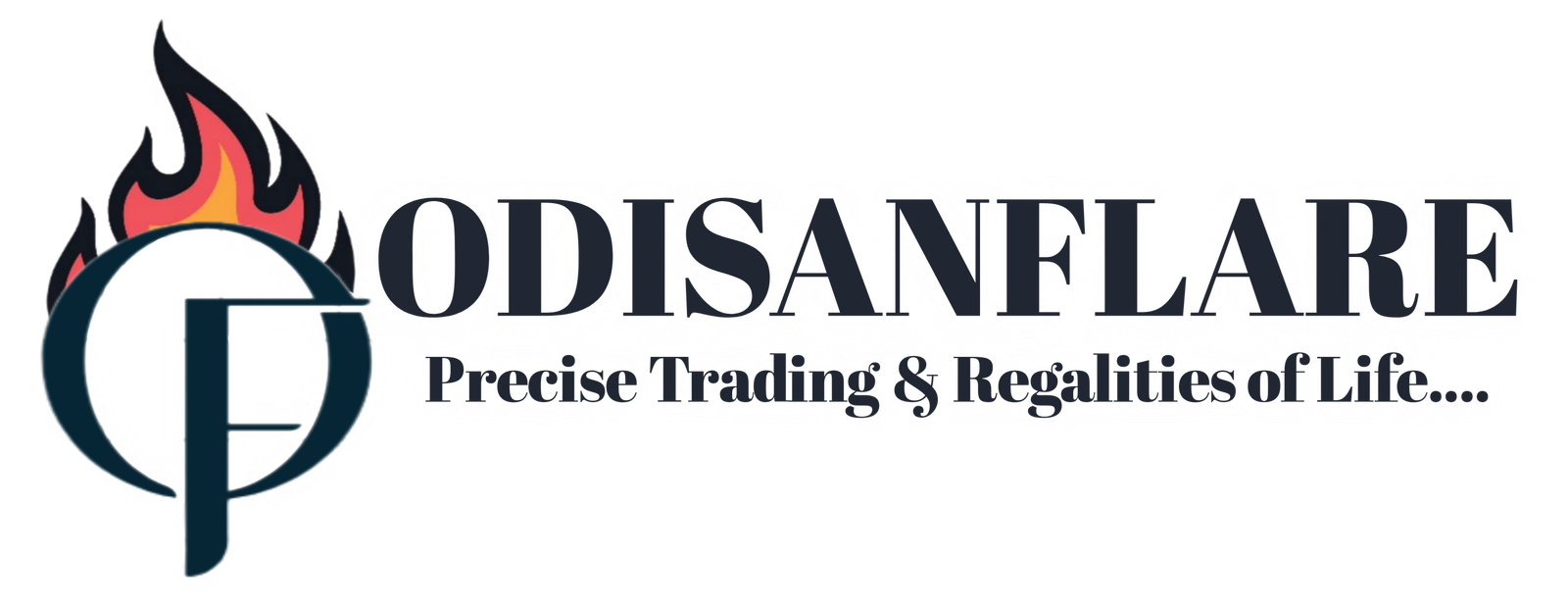10 Indicators You're on your way to Financial Prosperity
- Posted on 12 February, 2024
- business acumen
- By Somto Daniel

Ever feel like you’re navigating the road to financial success without a map? Don’t worry you’re not alone. Most of us start this journey with little more than a vague idea of where we’re headed. But if you pay attention, there are signs along the way that can tell you if you’re on the right track to financial prosperity.
Think of them as mile markers on the highway of wealth and a little encouragement to keep going, even when you feel like you’re stuck in the slow lane. So buckle up, keep your eyes peeled, and let’s look at the 10 indicators that prove you’re well on your way to financial prosperity!
1. You Have a Budget and You Stick to It
Let’s start with the basics: budgeting. A budget isn’t just a document filled with numbers; it’s a roadmap that shows you where your money is going and ensures it doesn’t wander off like a rebellious teenager. If you’ve taken the time to create a budget and actually stick to it, congratulations! You’ve laid the foundation for financial success.
A budget is telling your money where to go instead of wondering where it went.
It’s like giving your money a curfew, and you say, "Hey, you better be back in my wallet by midnight!"
2. You’ve Built an Emergency Fund That’s Your Financial Life Jacket
Having an emergency fund is one of the strongest indicators you’re headed toward financial prosperity. This fund acts as your financial life jacket, keeping you afloat when the unexpected happens because, let’s face it, life is full of surprises, and not all of them are good.
If you have three to six months’ worth of expenses stashed away in an easily accessible account, you’re ready for whatever curveballs life throws at you. It shows you’re not just surviving you’re preparing to thrive.
Think of your emergency fund as the ultimate adulting achievement. It’s like a badge of honor… except it’s money in the bank.
Related stories:
👉🏽The Habits Of The Wealthy
👉🏽10 Secret to A Successful Life
👉🏽Why 50% Of businesses Fail: Decoding Business Failure
3. You Pay Off Your Credit Cards in Full Every Month
Paying off your credit cards in full every month is a powerful indicator of financial discipline. It means you’re not falling into the trap of revolving debt, and you’re not paying outrageous amounts of interest. Plus, you’re showing those credit card companies who’s boss.
This habit reflects a healthy relationship with credit and shows that you’re using it as a tool rather than letting it use you.
There’s no better feeling than giving that credit card bill a side-eye and saying, “Nice try, but I’ve got this!”
4. You’re Investing Regularly, Even if It’s Just a Little at a Time
The wealthy don’t just save money; they make their money work for them. If you’re investing regularly whether it’s in stocks, bonds, real estate, or a retirement account, you’re planting seeds for future prosperity.
It doesn’t matter if you’re only investing a small amount each month; what matters is consistency. Like compound interest, those little investments grow over time, and one day, you’ll look back and wonder how you ever started so small.
Do not save what is left after spending, but spend what is left after saving.
Investing is like gardening, if you want a money tree, you’ve got to start by planting some cash seeds!
5. You’ve Got Financial Goals—And You’re Crushing Them!
Goals are dreams with deadlines, and if you’ve set financial goals and are actively working toward them, you’re doing great! Whether it’s buying a house, paying off student loans, saving for your child’s education, or planning a vacation, having clear, actionable goals is a sign that you’re taking control of your financial future.
Setting goals is easy, but crushing them is like being a financial ninja sneaky, strategic, and oddly satisfying.
6. You Understand the Difference Between Good Debt and Bad Debt
Not all debt is created equal. Wealthy people understand the difference between good debt (like a mortgage or a business loan) that can help you build wealth and bad debt (like credit card debt) that just drains your resources.
If you’re strategically using debt to invest in assets that appreciate over time and avoiding the stuff that doesn’t, you’re definitely moving in the right direction.
Good debt is like a frenemy, it's kind of helpful, but you still don’t fully trust it.
Trending Now: 👉🏽what Wealth Means In This Modern Era
7. You Keep Learning About Personal Finance
Wealthy individuals never stop learning. If you’re reading books, listening to podcasts, attending webinars, or consulting with financial advisors to learn more about personal finance, you’re making moves. The more you know, the better your financial decisions will be.
Learning about personal finance is like working out, it's painful at first, but soon you start to see those ‘knowledge abs’ forming.
8. You’ve Got Multiple Streams of Income (MSI)
If you’re not relying on just one paycheck, but have created multiple streams of income, like freelancing, a side business, or rental income, maybe you’re on a solid path to financial prosperity. Multiple streams of income provide financial security and give you options, even if one income stream dries up.
Don’t put all your eggs in one basket.” — Warren Buffett
Because if one basket falls… well, there goes breakfast!
9. You’re Not Afraid to Say No to Unnecessary Spending
One of the most underrated skills of financially prosperous people is the ability to say no—especially to things they don’t need. If you can walk past a sale sign and not feel the urge to splurge, you’re mastering the art of financial restraint.
You can’t have everything. Where would you put it?
Saying no to a sale feels like rejecting a bad relationship, actually you’re not mad; you’re just finally respecting yourself.
10. You’ve Got a Plan for Retirement—and It Doesn’t Involve Winning the Lottery
If you have a solid retirement plan and are actively contributing to it, you’re well on your way to financial prosperity. Whether it’s through a 401(k), an IRA, or other investment vehicles, you’re preparing for the future rather than crossing your fingers and hoping things magically work out.
Retirement is not the end of the road. It is the beginning of the open highway.
Let’s face it, “Hope” is not a retirement strategy unless you’re hoping your lottery numbers finally hit.
Conclusion: Keep Your Eyes on the Prize
If you recognize yourself in these 10 indicators, give yourself a pat on the back—you’re doing better than most! Financial prosperity isn’t about hitting the jackpot overnight; it’s about consistent, deliberate actions that align with your long-term goals.
Remember, wealth-building is a marathon, not a sprint. Celebrate the small victories, stay focused on your goals, and don’t forget to enjoy the journey. After all, the road to financial success doesn’t have to be all work and no play, just make sure you budget for fun too!
Success is not the key to happiness. Happiness is the key to success. If you love what you are doing, you will be successful.” — Albert Schweitzer
If you’re reading this, it’s a sign—you’re already halfway to becoming a financial wizard. Just don’t forget to have fun while you’re at it!
You might also like:
👉🏽13 Businesses You Can Start As A Student
👉🏽The Foundation Of Business Strategy
👉🏽Blockchain's Impact On Industries




0 Response